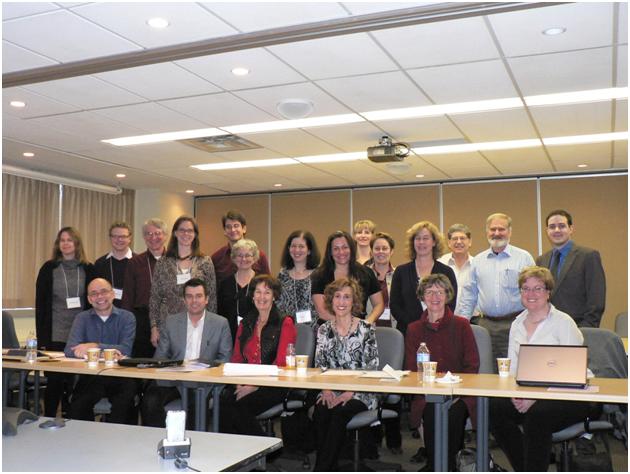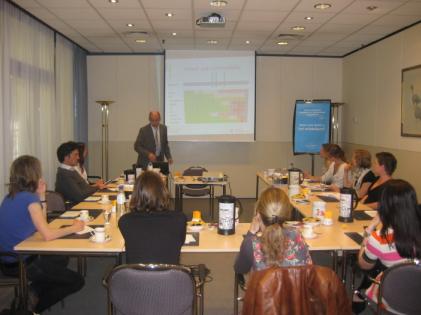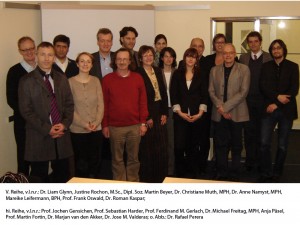By Christiane Muth, Amaia Calderón-Larrañaga, Marjan van den Akker, Beatriz Poblador-Plou and Alexandra Prados-Torres (from left to right)
A workshop on multimorbidity was held in Malta the 9th November in the context of the 20th Annual European Public Health Conference (EUPHA).
This workshop was organized by researchers of the Aragon Institute of Health Sciences (IACS) in Spain and the CAPHRI School for Public Health and Primary Care in the Netherlands, and supported by the EUPHA Section on Chronic Diseases. The aim was to shed light on future research and action strategies for patients with multiple chronic conditions.
The analysis was performed from three complementary perspectives. During the first part of the workshop, coordinated by Alexandra Prados and Amaia Calderón from the EpiChron Research Group on Chronic Diseases of the IACS, results from epidemiological research were presented regarding the systematic association between diseases or medications into so-called multimorbidity and polypharmacy patterns. The role of adverse drug events on increased morbidity burden was discussed.
The second part, led by Marjan van den Akker from CAPHRI School at Maastricht University, focused on the role to be played by health services in face of this reality, and the need to reorient them to give a global response to patient’s health problems. Specific interventions involving the patient (e.g. shared decision making, patient centred care), but also at the level of the organization of care (e.g. case managers, reorganizing chains of care) were reviewed.
Finally, Christiane Muth from the Institute of General Practice at Frankfurt’s Goethe University suggested a methodological framework to systematically address multimorbidity in clinical practice guidelines. Taking chronic heart failure (CHF) as an example, the importance of identifying relevant interactions between CHF and its common comorbidities, as well as potential drug-disease and drug-drug interactions was highlighted, as a necessary precondition and a first step to optimize health care in patients with multiple conditions.
For further detail on the program and speakers, see:














